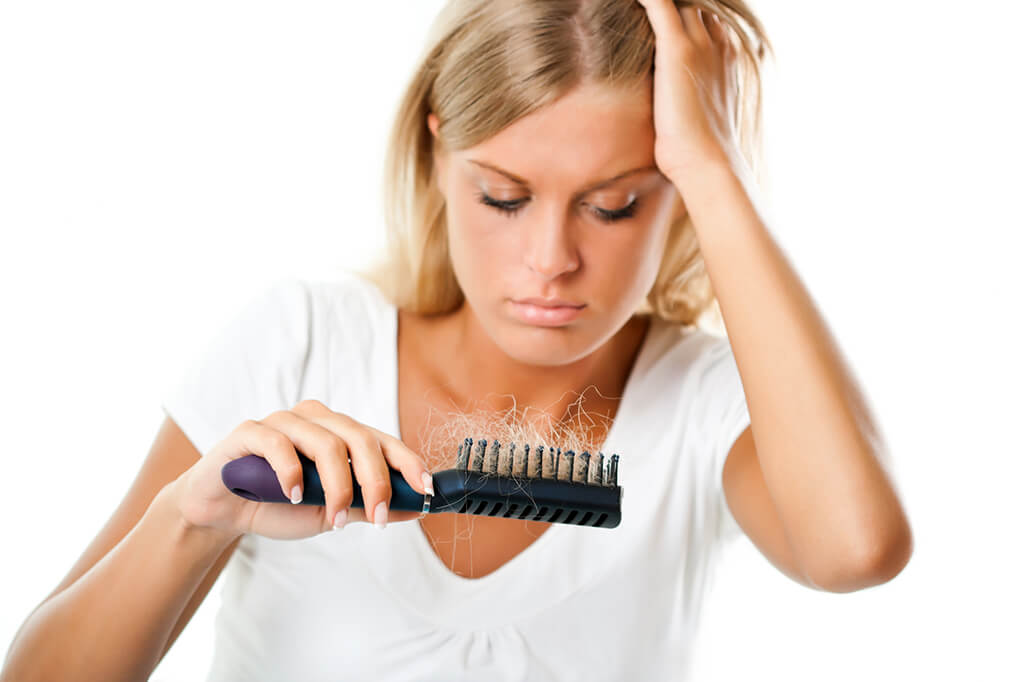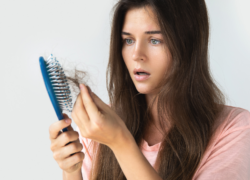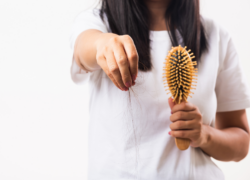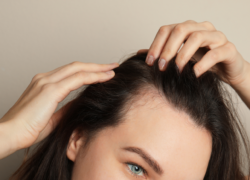
Hair loss or alopecia is a difficult thing to deal with. No one wants to lose their hair, and frequently, it has a very negative impact on a person’s self-esteem. Luckily, alopecia is treatable, and sometimes it’s just temporary! However, some risk factors are associated with the condition, so let’s discuss a few of those.
What is Alopecia?
Alopecia has different variations, but the term itself is a catchall for different types of hair loss. Alternate names are often used to describe the patterns and causes of hair loss. For example, the term for typical male or female-pattern baldness that comes with age is Androgenetic alopecia. Alopecia areata is hair loss that occurs in patches. Cicatricial alopecia is in response to inflammation and causes scar tissue. Frontal fibrosing alopecia is most common in post-menopausal women and it’s a receding hairline. Another form is traction alopecia, which occurs when stress is put on the hair, such as the stress from certain hairstyles.
Alopecia Risk Factors
Hair loss happens for a variety of reasons to people of all ages. Most often, cases you see are related to hereditary or age-related causes. For the most part, men are more affected by alopecia than women. However, some genetic and lifestyle factors put you at more risk of experiencing hair loss. Those include:
- Family history of balding
- Pregnancy
- Certain prescription medications,
- Medical conditions like diabetes or lupus
- Poor Nutrition
Pregnancy causes hormonal changes that can cause hair to fall out, and some medications cause hair loss as a side effect.
Reducing your Risk for Alopecia
Despite the list of risks you’ve seen, there are some actions you can take to reduce your chances of experiencing alopecia. However, not all of these factors are avoidable. Unfortunately, you cannot manipulate hereditary factors.
Eat a Healthy Diet
For men, there is are multiple studies that show a diet high in raw vegetables and herbs has delayed the presence of androgenetic alopecia. So including plenty of fruits and vegetables is a great way to stave off alopecia
Eat More Protein
One study showed a correlation between hair loss and lack of amino acids. Amino acids are the building blocks of proteins that hair is primarily made up of, specifically the keratin protein.
Taking Supplements
Deficiencies in vitamin D and iron can cause hair loss. Taking supplements that improve these levels in your body can reduce the chances of alopecia. However, too much vitamin A can promote hair loss. It’s best to discuss supplement issues with your doctor before proceeding with this option.
Alopecia is not something to be ashamed of. Remember, it happens to a lot of people. If any of these risk factors apply to you, call Parker Trichology today or check us out on Facebook! We can discuss your situation and provide treatment options for you if need be. Alopecia is not something our experts want you to stress over.



